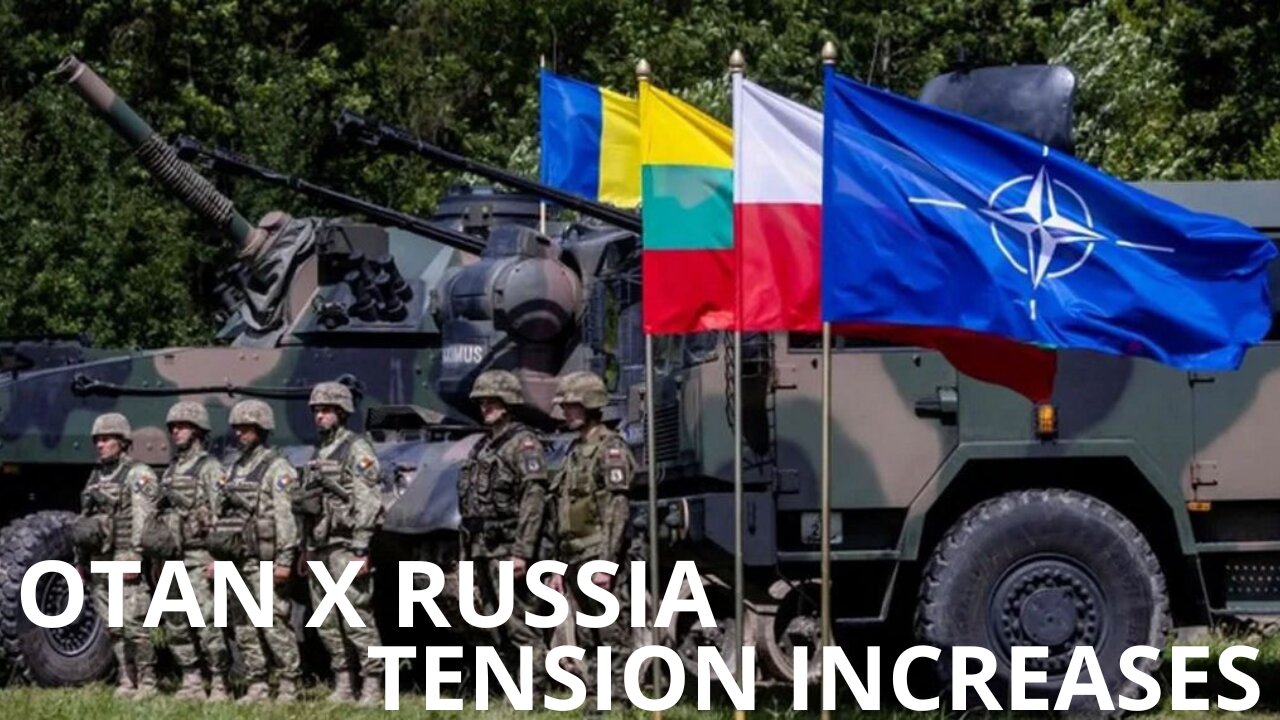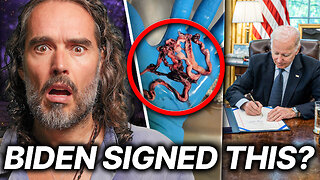Premium Only Content

Putin's Nuclear Threat, OTAN And Russia Exchange Dangerous Signals.
In The Face Of Putin's Nuclear Threat, OTAN And Russia Exchange Dangerous Signals And Tensions Only Grow.
In a recent development heightening global tensions, Russian President Vladimir Putin issued a stern warning about the potential use of nuclear weapons. This declaration follows the West’s decision to allow Ukraine to deploy long-range weaponry against Russia, marking a significant escalation in the ongoing conflict. Putin made this statement during his first face-to-face meeting with international news agency editors since the war in Ukraine began.
Putin criticized the West's assumption that Russia would never resort to nuclear weapons, calling it a grave miscalculation. He stressed that the Kremlin's nuclear doctrine should not be underestimated, particularly in light of OTAN call for Ukraine to use Western weapons to attack Russian territory. He warned that enabling Ukraine to strike Russia with more powerful arms would be seen as a severe escalation, potentially leading to direct conflict between the West and Russia.
The Russian president emphasized that any Western disregard for these warnings would prompt a reciprocal response from Russia. He vowed to intercept Western missiles and suggested that Moscow might deploy similar long-range missiles close enough to target Western countries. While Putin did not specify potential deployment locations, his statement underscores the seriousness of the situation, indicating that these threats should be taken seriously and addressed professionally.
Putin's warnings followed U.S. President Joe Biden’s authorization for Ukraine to launch certain American-supplied missiles targeting Russia. Although Washington continues to prohibit Kyiv from using other long-range U.S.-supplied weapons against Russia, European allies have been pressuring the U.S. to lift these restrictions. They argue that Ukraine has the right to use British-supplied weapons to strike targets within Russia, leaving the decision to Kyiv.
European allies maintain that providing arms and equipment to Ukraine does not equate to direct involvement in the conflict with Russia. They support certain restrictions on the use of these weapons. However, when Russian troops began advancing towards Kyiv, Ukraine renewed its calls for the relaxation of these rules. A pressure campaign led by the United Kingdom in Europe eventually influenced Washington to meet Ukraine's demands, which Russia sees as a significant escalation.
Since the war's inception, Russia has consistently drawn red lines regarding Western involvement in the Ukraine conflict. For Moscow, the use of Western weapons to strike deeper into Russian territory signifies OTAN direct involvement in the war. Despite these red lines, Russia has issued repeated warnings to the West about the dangers of arming Ukraine with advanced weaponry. The West has progressively escalated its support, moving from providing basic armaments to advanced rocket launchers, M1 Abrams tanks, and soon, American-made F-16 jets.
While long-range ground attacks remain off the table for Ukraine, indicating the Biden administration's cautious approach to avoid direct conflict with Russia, the recent green light for missile strikes suggests a potential crossing of Putin's red line by OTAN. Despite this, Putin has yet to retaliate militarily against the West for its support of Ukraine, raising the question of how long he will continue to exercise restraint.
On Wednesday, Putin outlined Russia's response to long-range attacks. According to him, Moscow would respond in two primary ways: enhancing air defenses to destroy Western missiles and deploying similar weapons within striking distance of the West. He warned that continued escalation by the West would completely undermine international relations and global security.
Russia has framed the war in Ukraine as a proxy conflict between itself and OTAN, frequently referencing its red lines. Putin has even suggested the potential use of nuclear weapons if there were an existential threat to the Russian state, a threat that remains ambiguous yet potent in the eyes of OTAN countries bordering Russia.
The repeated threats from Moscow have paradoxically made it easier for Ukraine's allies to cross Russia's red lines without immediate repercussions. While Russia has been bold in its military actions, it has also been cautious to avoid direct engagement with OTAN forces. Putin has warned of retaliation but has refrained from escalating the conflict beyond Ukraine's borders and has not introduced nuclear weapons onto the battlefield.
Nevertheless, as both sides continue to escalate their involvement, the conflict in Ukraine risks spiraling out of control. The potential for the situation to escalate into a broader conflict, possibly involving nuclear weapons, looms ominously over international relations.
In conclusion, the recent exchanges between OTAN and Russia highlight a dangerous escalation in the Ukraine conflict. With Putin's warnings about the potential use of nuclear weapons and the West's increasing support for Ukraine, the risk of a broader, more devastating conflict grows. The international community must carefully navigate this precarious situation to prevent further escalation and maintain global security.
To stay informed and up to date with the latest news, subscribe to our channel.
-
 10:37
10:37
Russell Brand
2 days agoHow is this even allowed?
141K789 -
 1:37:26
1:37:26
Real Coffee With Scott Adams
5 hours agoEpisode 2701 CWSA 12/26/24
74.8K74 -
 2:58:58
2:58:58
Wendy Bell Radio
9 hours ago9 Steps Ahead
107K126 -
 2:03:46
2:03:46
LFA TV
18 hours agoTIME FOR A NEW SPEAKER! | LIVE FROM AMERICA 12.26.24 11am EST
58.9K35 -
 1:40:22
1:40:22
Game On!
15 hours ago $5.03 earnedNFL Thursday Night Football Seahawks at Bears EXPERT Picks!
45.1K9 -
 1:50:54
1:50:54
xBuRnTx
5 hours agoWho's Ready for New Years!
33.5K1 -
 12:09
12:09
Tactical Advisor
17 hours agoSmith & Wesson Shield Plus Carry Comp
27.3K2 -
 4:35:25
4:35:25
Father Russell
10 hours agoDelta Force | Not A Woman? | Mad Martigan Time
67.5K5 -
 3:29:42
3:29:42
BrookieMonster
17 hours ago $44.84 earnedChristmas Stream: Marvel Rivals with CallmeSeags 🎄
186K13 -
 LIVE
LIVE
TheSaf3Hav3n
4 days ago| RUMBLES FIRST SUBATHON IS HERE!!! | DAY 4 |
243 watching